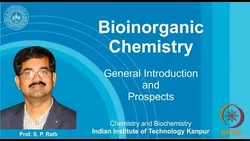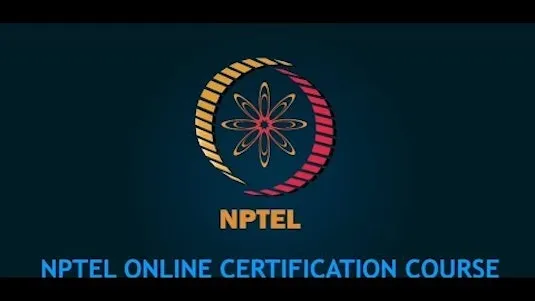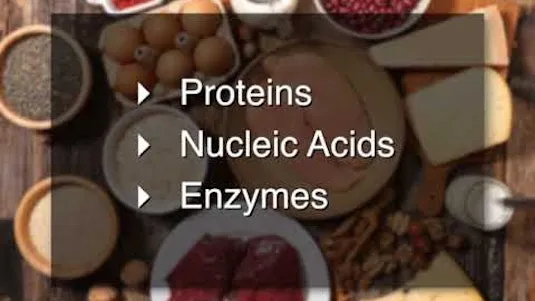
Principles of Biochemistry 
This course provides an introduction to the principles of biochemistry, including the structure of macromolecules, enzyme kinetics, metabolic pathways, and the manipulation of enzymes and pathways. Learners will explore simple cells to more complex tissues, and develop problem solving and analytical skills applicable to the life sciences. This course is ideal for those looking to gain a better understanding of biochemistry and its principles. ▼
ADVERTISEMENT
Course Feature
![]() Cost:
Cost:
Free
![]() Provider:
Provider:
Edx
![]() Certificate:
Certificate:
Paid Certification
![]() Language:
Language:
English
![]() Start Date:
Start Date:
8th Feb, 2023
Course Overview
❗The content presented here is sourced directly from Edx platform. For comprehensive course details, including enrollment information, simply click on the 'Go to class' link on our website.
Updated in [May 25th, 2023]
This course, Principles of Biochemistry, provides learners with an introduction to the structure of macromolecules and a biochemical approach to cellular function. Learners will gain an understanding of protein function, including enzyme kinetics, the characterization of major metabolic pathways and their interconnection into tightly regulated networks, and the manipulation of enzymes and pathways with mutations or drugs. The course will also explore the progression in metabolic complexity from simple cells (red blood cells) to more complex tissues (muscle and liver). Additionally, learners will develop problem solving and analytical skills that are more generally applicable to the life sciences.
[Applications]
After completing this course, learners can apply their knowledge of biochemistry to a variety of fields, such as medicine, nutrition, and biotechnology. They can use their understanding of macromolecules and cellular function to develop new treatments for diseases, create more efficient and nutritious food products, and develop new technologies for biotechnology. Additionally, learners can use their problem solving and analytical skills to develop new research projects and experiments.
[Career Paths]
1. Biochemist: Biochemists study the chemical and physical properties of living organisms and the processes occurring within living cells. They use their knowledge to develop new drugs, diagnose diseases, and understand the effects of environmental toxins. As biochemistry advances, biochemists are increasingly involved in the development of new technologies, such as gene therapy and stem cell research.
2. Clinical Biochemist: Clinical biochemists are responsible for the analysis of biological samples, such as blood, urine, and tissue, to diagnose and monitor diseases. They use a variety of techniques, such as chromatography, spectroscopy, and immunoassays, to identify and quantify the components of biological samples. Clinical biochemists are also involved in the development of new diagnostic tests and treatments.
3. Molecular Biologist: Molecular biologists study the structure and function of genes and proteins at the molecular level. They use a variety of techniques, such as DNA sequencing, gene expression analysis, and protein purification, to understand the role of genes and proteins in the development and progression of diseases. As molecular biology advances, molecular biologists are increasingly involved in the development of new treatments and therapies.
4. Bioinformatician: Bioinformaticians use computational methods to analyze and interpret biological data. They develop algorithms and software tools to analyze large datasets, such as genomic and proteomic data, to identify patterns and relationships. As the amount of biological data increases, bioinformaticians are increasingly involved in the development of new technologies to analyze and interpret this data.
[Education Paths]
1. Bachelor of Science in Biochemistry: A Bachelor of Science in Biochemistry is a four-year degree program that focuses on the study of the chemical processes that occur in living organisms. Students will learn about the structure and function of proteins, carbohydrates, lipids, and nucleic acids, as well as the metabolic pathways that connect them. This degree program is becoming increasingly popular as biochemistry is becoming more important in the medical and pharmaceutical fields.
2. Master of Science in Biochemistry: A Master of Science in Biochemistry is a two-year degree program that focuses on the advanced study of the chemical processes that occur in living organisms. Students will learn about the structure and function of proteins, carbohydrates, lipids, and nucleic acids, as well as the metabolic pathways that connect them. This degree program is becoming increasingly popular as biochemistry is becoming more important in the medical and pharmaceutical fields.
3. Doctor of Philosophy in Biochemistry: A Doctor of Philosophy in Biochemistry is a four-year degree program that focuses on the advanced study of the chemical processes that occur in living organisms. Students will learn about the structure and function of proteins, carbohydrates, lipids, and nucleic acids, as well as the metabolic pathways that connect them. This degree program is becoming increasingly popular as biochemistry is becoming more important in the medical and pharmaceutical fields.
4. Doctor of Medicine in Biochemistry: A Doctor of Medicine in Biochemistry is a four-year degree program that focuses on the advanced study of the chemical processes that occur in living organisms. Students will learn about the structure and function of proteins, carbohydrates, lipids, and nucleic acids, as well as the metabolic pathways that connect them. This degree program is becoming increasingly popular as biochemistry is becoming more important in the medical and pharmaceutical fields.
Course Provider

Provider Edx's Stats at AZClass
Discussion and Reviews
0.0 (Based on 0 reviews)
Explore Similar Online Courses

Getting Started with Google Analytics

Managing My Money for Young Adults

Python for Informatics: Exploring Information

Social Network Analysis

Introduction to Systematic Review and Meta-Analysis

The Analytics Edge

DCO042 - Python For Informatics

Causal Diagrams: Draw Your Assumptions Before Your Conclusions

Whole genome sequencing of bacterial genomes - tools and applications

Bioinorganic Chemistry

Essentials of Biomolecules : Nucleic Acids and Peptides


Start your review of Principles of Biochemistry